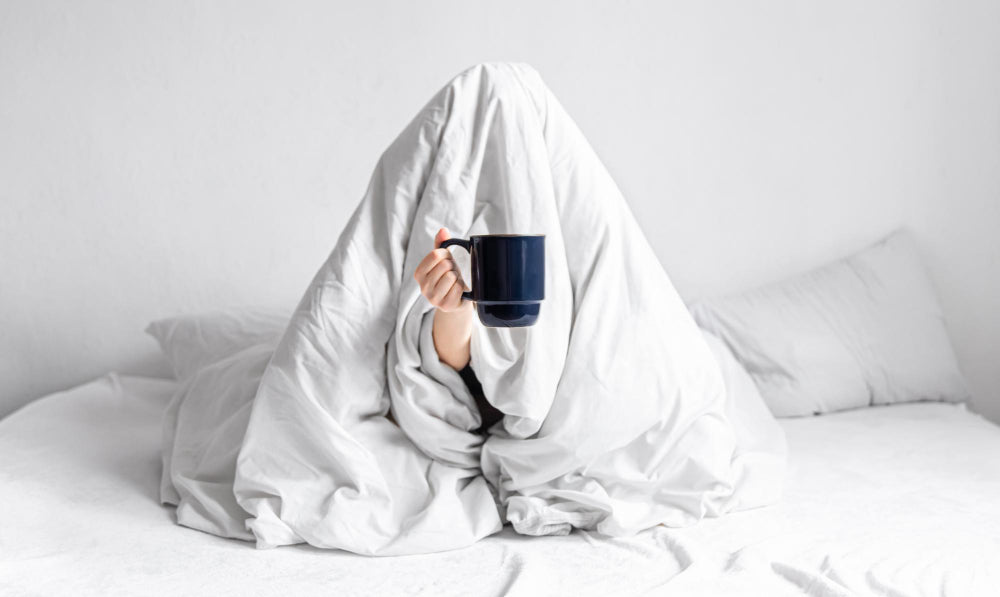We all know the importance of a good night’s sleep, but what happens when sleep doesn’t come easy? Your sleep hormone, melatonin, could be the missing piece to your puzzle. Melatonin plays a crucial role in regulating your sleep-wake cycle, and if you’re deficient, you’ll likely struggle to perform your best. In this guide, we’ll dive into how to recognize melatonin deficiency, what causes it, and the best ways to restore balance for quality sleep.
What Is Melatonin, and Why Does It Matter?
Melatonin is a hormone produced by the pineal gland in your brain that helps regulate your sleep-wake cycle. In response to darkness, your body increases melatonin production, signaling it’s time to wind down. However, modern lifestyles, stress, and exposure to artificial light can disrupt this natural rhythm, leading to a melatonin imbalance.
Without enough melatonin, you’ll find it harder to fall asleep, stay asleep, or wake up feeling rested. This deficiency can lead to long-term issues like insomnia, fatigue, and poor cognitive performance.
How Do You Recognize a Melatonin Deficiency?
The symptoms of a melatonin deficiency can often be subtle or mistaken for other issues. If you’re having trouble falling asleep, frequently waking up in the night, or feel tired despite getting 7-8 hours of sleep, you may be low on melatonin. Other signs include:
- Restlessness and irritability: Constant fidgeting or trouble relaxing could signal melatonin imbalance.
- Waking too early: If you wake up early, unable to go back to sleep, this could be an indicator.
- Poor stress response: Stress seems more overwhelming when your melatonin levels are off, making it harder to cope.
Common Causes of Melatonin Deficiency
-
Blue Light Exposure in the Evening: Our digital devices—smartphones, laptops, and even TVs—emit blue light that tricks the brain into thinking it’s still daytime. Blue light suppresses melatonin production, disrupting your sleep cycle.
-
Caffeine Consumption: Consuming coffee or energy drinks late in the day can delay melatonin production. Caffeine stays in your system longer than you think, with a half-life of around 4-6 hours.
-
Alcohol: While a nightcap might make you feel sleepy, alcohol disrupts your natural sleep cycles and reduces melatonin production.
-
Shift Work or Jet Lag: If you work varying shifts or frequently travel across time zones, your circadian rhythm can be knocked off balance, making it harder for your body to produce melatonin at the right time.
-
Aging: As we age, our bodies naturally produce less melatonin, which is why sleep disturbances are more common in older adults.
Who Is Most Affected by Melatonin Deficiency?
-
Shift Workers: Those who work irregular hours, especially night shifts, often struggle with melatonin levels because they are awake during the hours when melatonin production is supposed to be highest.
-
Frequent Travelers: Those who frequently cross time zones can experience melatonin disruption, leading to jet lag and difficulty adjusting to new time zones.
-
People Over 40: Natural melatonin production decreases as we age. By the time you hit 40, your body produces only 60% of the melatonin it did in your younger years.
Signs You May Be Deficient
Recognizing the signs of melatonin deficiency early can help you make adjustments before your sleep cycle spirals into more serious problems. Symptoms include:
-
Daytime Sleepiness: If you often feel sleepy or fatigued during the day despite a full night’s sleep, your melatonin levels may be insufficient.
-
Concentration Problems: Trouble focusing or frequent "brain fog" may stem from a lack of deep, restorative sleep.
-
Mood Swings or Irritability: When you’re sleep-deprived, you’re more likely to experience mood swings, anxiety, or even depressive symptoms.
How to Test for Melatonin Deficiency
Fortunately, determining whether you have a melatonin deficiency is relatively easy. There are several saliva test kits available that allow you to check your melatonin levels from the comfort of home. Once you’ve collected a sample, it’s sent to a lab, and the results are typically available online within a few days.
Alternatively, if you’re experiencing severe sleep disturbances, a sleep specialist can help you assess your melatonin levels more comprehensively through sleep studies.
What Happens If Melatonin Deficiency Goes Untreated?
If left untreated, melatonin deficiency can affect your overall health, both mentally and physically. Potential consequences include:
-
Chronic Fatigue: Without proper sleep, your body can’t recharge, leading to long-term fatigue.
-
Increased Stress and Anxiety: Melatonin has a calming effect on your nervous system, so when you’re deficient, stress responses are amplified.
-
Decreased Cognitive Function: Lack of sleep directly impacts memory, focus, and cognitive performance.
-
Higher Risk of Health Issues: Ongoing sleep deprivation due to low melatonin levels can contribute to more serious health conditions like heart disease, obesity, and weakened immune function.
How to Correct Melatonin Deficiency
Luckily, correcting a melatonin deficiency is within your control. Here are some lifestyle changes and supplements that can help restore healthy melatonin levels:
-
Limit Blue Light Exposure: Install blue-light-blocking apps on your phone, like Night Shift or F.lux, or wear blue light-blocking glasses in the evening. This will help your body produce melatonin naturally.
-
Create a Sleep-Conducive Environment: Your bedroom should be dark, cool, and free of distractions. Consider blackout curtains and maintaining a room temperature around 65°F (18°C) for optimal sleep.
-
Establish a Bedtime Routine: Going to bed and waking up at the same time every day can help regulate your circadian rhythm.
-
Melatonin Supplements: Melatonin supplements, available as pills, sprays, or gummies, can help jumpstart your body’s natural production of melatonin. It’s best to take them about 30-60 minutes before bedtime for optimal effect.
Melatonin Supplements: Are They for You?
Melatonin supplements are a short-term solution to help your body adjust its sleep-wake cycle. If you’re a frequent traveler or shift worker, they can help you reset your internal clock. However, they’re not a long-term fix. Over-reliance on melatonin supplements can lead to a reduced natural production of the hormone. Be sure to also focus on improving your sleep hygiene for sustainable results.
Try Sleep Melatonin Capsules or Spray
If you’re looking for a natural way to improve your sleep, melatonin supplements can be a good place to start. A supplement like SLEEP capsules or melatonin spray can help you fall asleep faster and achieve more restful sleep. Melatonin sprays are especially helpful for those who prefer not to take capsules, as they are absorbed quickly through the oral mucosa.
Conclusion: Restful Sleep Awaits
Melatonin is your body’s natural sleep hormone, and a deficiency can severely impact your quality of sleep and overall well-being. By addressing lifestyle factors like blue light exposure, caffeine intake, and stress levels, you can restore your body’s natural melatonin production and improve your sleep. If you think you might have a deficiency, consider incorporating melatonin supplements into your bedtime routine for extra support.











Leave a comment
This site is protected by hCaptcha and the hCaptcha Privacy Policy and Terms of Service apply.